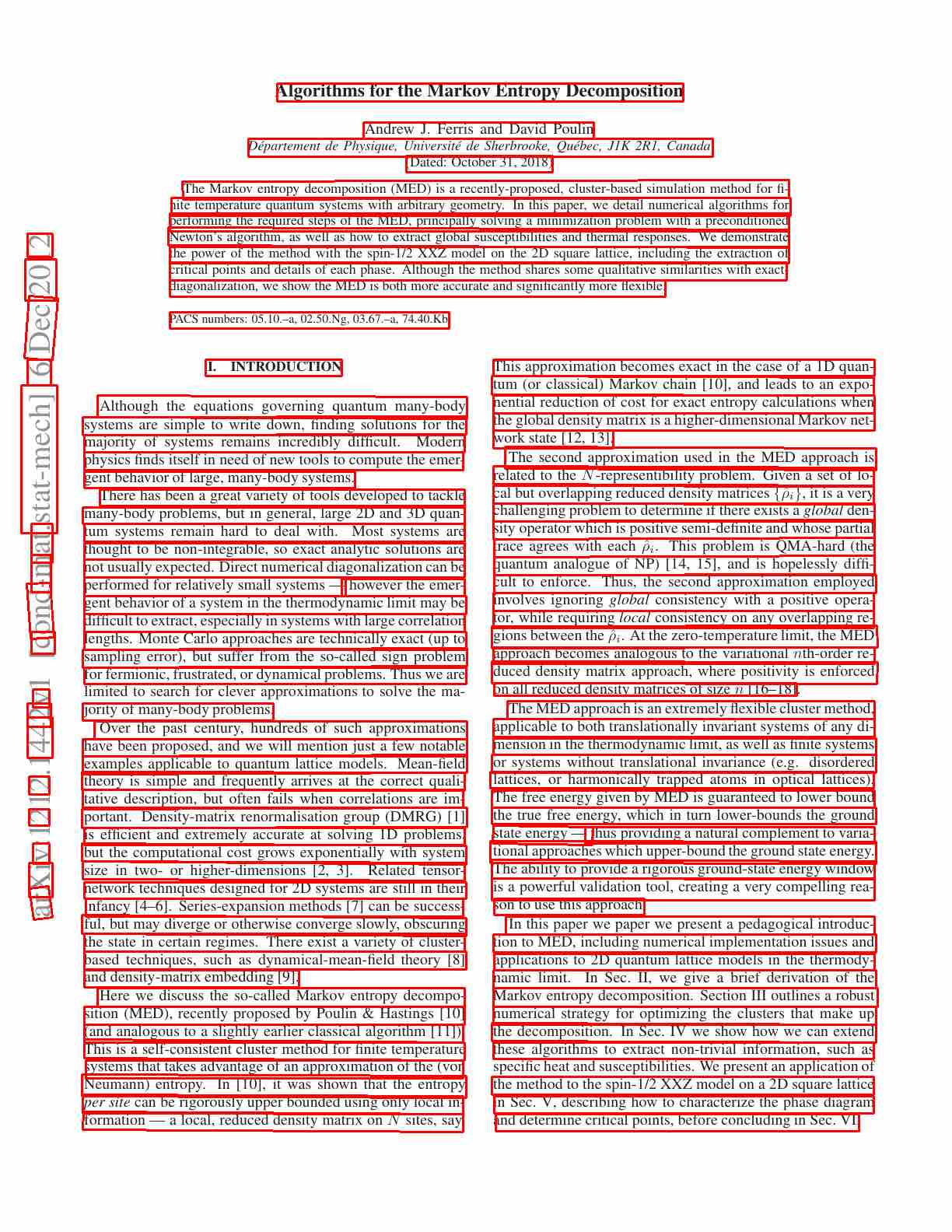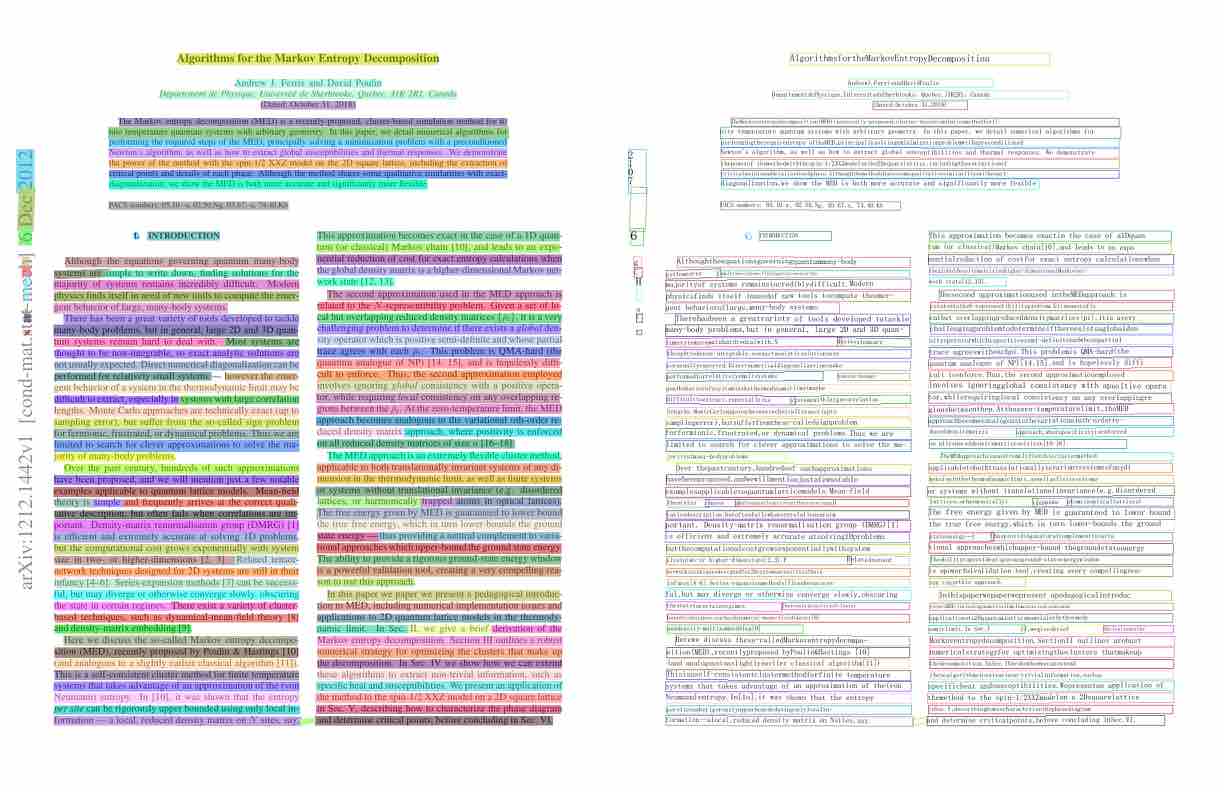File size: 12,441 Bytes
b201e35 e6d04e2 3cc09f3 b201e35 |
1 2 3 4 5 6 7 8 9 10 11 12 13 14 15 16 17 18 19 20 21 22 23 24 25 26 27 28 29 30 31 32 33 34 35 36 37 38 39 40 41 42 43 44 45 46 47 48 49 50 51 52 53 54 55 56 57 58 59 60 61 62 63 64 65 66 67 68 69 70 71 72 73 74 75 76 77 78 79 80 81 82 83 84 85 86 87 88 89 90 91 92 93 94 95 96 97 98 99 100 101 102 103 104 105 106 107 108 109 110 111 112 113 114 115 116 117 118 119 120 121 122 123 124 125 126 127 128 129 130 131 132 133 134 135 136 137 138 139 140 141 142 143 144 145 146 147 148 149 150 151 152 153 154 155 156 157 158 159 160 161 162 163 164 165 166 167 168 169 170 171 172 173 174 175 176 177 |
---
license: apache-2.0
library_name: PaddleOCR
language:
- en
- zh
pipeline_tag: image-to-text
tags:
- OCR
- PaddlePaddle
- PaddleOCR
- textline_detection
---
# PP-OCRv4_mobile_det
## Introduction
PP-OCRv4_mobile_det is one of the PP-OCRv4_det series models, a set of text detection models developed by the PaddleOCR team. This mobile-optimized text detection model offers higher efficiency, making it ideal for deployment on edge devices. Its key accuracy metrics are as follows:
| Handwritten Chinese | Handwritten English | Printed Chinese | Printed English | Traditional Chinese | Ancient Text | Japanese | General Scenario | Pinyin | Rotation | Distortion | Artistic Text | Average |
| --- | --- | --- | --- | --- | --- | --- | --- | --- | --- | --- | --- | --- |
| 0.583 | 0.369 | 0.872 | 0.773 | 0.663 | 0.231 | 0.634 | 0.710 | 0.430 | 0.299 | 0.715 | 0.549 | 0.624 |
## Quick Start
### Installation
1. PaddlePaddle
Please refer to the following commands to install PaddlePaddle using pip:
```bash
# for CUDA11.8
python -m pip install paddlepaddle-gpu==3.0.0 -i https://www.paddlepaddle.org.cn/packages/stable/cu118/
# for CUDA12.6
python -m pip install paddlepaddle-gpu==3.0.0 -i https://www.paddlepaddle.org.cn/packages/stable/cu126/
# for CPU
python -m pip install paddlepaddle==3.0.0 -i https://www.paddlepaddle.org.cn/packages/stable/cpu/
```
For details about PaddlePaddle installation, please refer to the [PaddlePaddle official website](https://www.paddlepaddle.org.cn/en/install/quick).
2. PaddleOCR
Install the latest version of the PaddleOCR inference package from PyPI:
```bash
python -m pip install paddleocr
```
### Model Usage
You can quickly experience the functionality with a single command:
```bash
paddleocr text_detection \
--model_name PP-OCRv4_mobile_det \
-i https://cdn-uploads.huggingface.co/production/uploads/681c1ecd9539bdde5ae1733c/3ul2Rq4Sk5Cn-l69D695U.png
```
You can also integrate the model inference of the text detection module into your project. Before running the following code, please download the sample image to your local machine.
```python
from paddleocr import TextDetection
model = TextDetection(model_name="PP-OCRv4_mobile_det")
output = model.predict(input="3ul2Rq4Sk5Cn-l69D695U.png", batch_size=1)
for res in output:
res.print()
res.save_to_img(save_path="./output/")
res.save_to_json(save_path="./output/res.json")
```
After running, the obtained result is as follows:
```json
{'res': {'input_path': '/root/.paddlex/predict_input/3ul2Rq4Sk5Cn-l69D695U.png', 'page_index': None, 'dt_polys': array([[[ 637, 1432],
...,
[ 637, 1454]],
...,
[[ 356, 107],
...,
[ 356, 130]]], dtype=int16), 'dt_scores': [0.8305358711080322, 0.6912752452425651, ..., 0.848925772091929]}}
```
The visualized image is as follows:

For details about usage command and descriptions of parameters, please refer to the [Document](https://paddlepaddle.github.io/PaddleOCR/latest/en/version3.x/module_usage/text_detection.html#iii-quick-start).
### Pipeline Usage
The ability of a single model is limited. But the pipeline consists of several models can provide more capacity to resolve difficult problems in real-world scenarios.
#### PP-OCRv4
The general OCR pipeline is used to solve text recognition tasks by extracting text information from images and outputting it in text form. And there are 5 modules in the pipeline:
* Document Image Orientation Classification Module (Optional)
* Text Image Unwarping Module (Optional)
* Text Line Orientation Classification Module (Optional)
* Text Detection Module
* Text Recognition Module
Run a single command to quickly experience the OCR pipeline:
```bash
paddleocr ocr -i https://cdn-uploads.huggingface.co/production/uploads/681c1ecd9539bdde5ae1733c/3ul2Rq4Sk5Cn-l69D695U.png \
--text_detection_model_name PP-OCRv4_mobile_det \
--text_recognition_model_name PP-OCRv4_mobile_rec \
--use_doc_orientation_classify False \
--use_doc_unwarping False \
--use_textline_orientation False \
--save_path ./output \
--device gpu:0
```
Results are printed to the terminal:
```json
{'res': {'input_path': '/root/.paddlex/predict_input/3ul2Rq4Sk5Cn-l69D695U.png', 'page_index': None, 'model_settings': {'use_doc_preprocessor': True, 'use_textline_orientation': False}, 'doc_preprocessor_res': {'input_path': None, 'page_index': None, 'model_settings': {'use_doc_orientation_classify': False, 'use_doc_unwarping': False}, 'angle': -1}, 'dt_polys': array([[[ 356, 105],
...,
[ 356, 129]],
...,
[[ 630, 1432],
...,
[ 630, 1451]]], dtype=int16), 'text_det_params': {'limit_side_len': 64, 'limit_type': 'min', 'thresh': 0.3, 'max_side_limit': 4000, 'box_thresh': 0.6, 'unclip_ratio': 1.5}, 'text_type': 'general', 'textline_orientation_angles': array([-1, ..., -1]), 'text_rec_score_thresh': 0.0, 'rec_texts': ['AlgorithmsfortheMarkovEntropyDecomposition', 'AndrewJ.FerrisandDavidPoulin', 'DepartementdePhysique,UniversitedeSherbrooke,Quebec,J1K2R1,Canada', '(Dated:October 31,2018)', 'TheMarkoventropydecomposition(MED)isarecently-proposed,cluster-basedsimulationmethodforfi-', 'nite temperature quantum systems with arbitrary geometry. In this paper, we detail numerical algorithms for', 'performingtherequiredsteps oftheMED,principallysolvingaminimizationproblemwithapreconditioned', '2107', "Newton's algorithm, as well as how to extract global susceptibilities and thermal responses. We demonstrate", 'thepowerof themethodwiththespin-1/2XXZmodelonthe2Dsquarelattice,includingtheextractionof', 'criticalpointsanddetailsofeachphase.Althoughthemethodsharessomequalitativesimilaritieswithexact-', 'diagonalization,we show the MED is both more accurate and significantly more fexible', '', 'PACS numbers: 05.10.a, 02.50.Ng, 03.67.a, 74.40.Kb', '6', '1', 'INTRODUCTION', 'This approximation becomes exactin the case of a1Dquan', 'tum (or classical)Markov chain[10],and leads to an expo', 'g', 'Althoughtheequationsgoverningquantummany-body', 'nentialreduction of costfor exact entropy calculationswhen', 'C', 'systemsares', 'simpletowritedown,findingsolutionsforthe', 'theglobaldensitymatrixisahigher-dimensionalMarkovnet-', 'H', 'majorityof systems remainsincrediblydifficult.Modern', 'work state[12,13].', 'physicsfinds itself inneedof new tools tocompute theemer-', 'Thesecond approximationused intheMEDapproach is', 'gent behavioroflarge,many-body systems.', 'relatedtotheN-representibilityproblem.Givenasetoflo', '', 'T', 'Therehasbeen a greatvariety of tools developed totackle', 'calbut overlappingreduceddensitymatrices{pi},itis avery', 'many-body problems,but in general, large 2D and 3D quan-', 'challengingproblemtodetermineifthereexistsaglobalden', '1', 'tumsystemsremainhardtodealwith.N', 'Mostsystemsare', 'sityoperatorwhichispositivesemi-definiteandwhosepartial', 'thoughttobenon-integrable,soexactanalyticsolutionsare', 'trace agreeswitheachpi.This problemis QMA-hard(the', 'notusuallyexpected.Directnumericaldiagonalizationcanbe', 'quantum analogue of NP)[14,15],and is hopelessly diffi', 'performedforrelativelysmallsystems', 'howevertheemer', 'cult toenforce.Thus,the second approximationemployed', 'gentbehaviorofasysteminthethermodynamiclimitmaybe', 'involves ignoringglobal consistency with apositive opera', 'difficulttoextract,especiallyins', 'systemswithlargecorrelation', 'tor,whilerequiringlocal consistency on any overlappingre', 'lengths.MonteCarloapproachesaretechnicallyexact(upto', 'gionsbetweenthep.Atthezero-temperaturelimit,theMED', 'samplingerror),butsufferfromtheso-calledsignproblem', 'approachbecomesanalogoustothevariationalnth-orderre-', 'forfermionic,frustrated,or dynamical problems.Thus we are', 'duceddensitymatrix', 'approach,wherepositivityisenforced', 'limited to search for clever approximations to solve the ma-', 'on allreduceddensitymatricesofsizen[16-18].', 'jorityofmany-bodyproblems', 'TheMEDapproachisanextremelyflexibleclustermethod', 'Over thepastcentury,hundredsof suchapproximations', 'applicabletobothtranslationallyinvariantsystemsofanydi', 'havebeenproposed,andwewillmentionjustafewnotable', 'mensioninthethermodynamiclimit,aswellasfinitesystems', 'examplesapplicabletoquantumlatticemodels.Mean-field', 'or systems without translationalinvariance(e.g.disordered', 'theoryiss', 'simplea', 'andfrequentlyarrivesatthecorrectquali', 'lattices,orharmonicallyt', 'trappeda', 'atomsinopticallattices)', 'tativedescription,butoftenfailswhencorrelationsareim', 'The free energy given by MED is guaranteed to lower bound', 'portant. Density-matrix renormalisation group (DMRG)[1]', 'the true free energy,which in turn lower-bounds the ground', 'is efficient and extremely accurate atsolving1Dproblems', 'stateenergy—t', 'thusprovidinganaturalcomplementtovaria', 'butthecomputationalcostgrowsexponentiallywithsystem', 'tional approacheswhichupper-bound thegroundstateenergy', 'sizeintwo-or higher-dimensions[2,3].F', 'Relatedtensor', 'Theabilitytoprovidearigorousground-stateenergywindow', 'networktechniquesdesignedfor2Dsystemsarestillinthein', 'is apowerfulvalidation tool,creating avery compellingrea-', 'infancy[4-6].Series-expansionmethods[7]canbesuccess-', 'son tousethis approach', 'ful,but may diverge or otherwise converge slowly,obscuring', 'Inthispaperwepaperwepresent apedagogicalintroduc', 'thestateincertainregimes.', 'Thereexistavarietyofcluster', 'tiontoMED,includingnumericalimplementationissuesand', 'basedtechniques,suchasdynamical-mean-fieldtheory[8]', 'applicationsto2Dquantumlatticemodelsinthethermody', 'anddensity-matrixembedding[9]', 'namiclimit.In Sec.I', 'II,wegiveabrief', 'derivationofthe', 'Herewe discuss theso-calledMarkoventropydecompo-', 'Markoventropydecomposition.SectionII outlines arobust', 'sition(MED),recentlyproposed byPoulin&Hastings [10]', 'numericalstrategyfor optimizingtheclusters thatmakeup', '(and analogoustoaslightlyearlier classical algorithm[11])', 'thedecomposition.InSec.IVweshowhowwecanextend', 'Thisisaself-consistentclustermethodforfinite temperature', 'thesealgorithmstoextractnon-trivialinformation,suchas', 'systems that takes advantage of an approximation of the(von', 'specificheat andsusceptibilities.Wepresentan application of', 'Neumann)entropy.In[1o],it was shown that the entropy', 'themethod to the spin-1/2XXZmodelon a 2Dsquarelattice', 'persitecanberigorouslyupperboundedusingonlylocalin-', 'inSec.V,describinghowtocharacterizethephasediagram', 'formation—alocal,reduced density matrix on Nsites,say.', '', 'and determine criticalpoints,before concluding inSec.VI.'], 'rec_scores': array([0.9952876 , ..., 0.95561302]), 'rec_polys': array([[[ 356, 105],
...,
[ 356, 129]],
...,
[[ 630, 1432],
...,
[ 630, 1451]]], dtype=int16), 'rec_boxes': array([[ 356, ..., 130],
...,
[ 630, ..., 1451]], dtype=int16)}}
```
If save_path is specified, the visualization results will be saved under `save_path`. The visualization output is shown below:

The command-line method is for quick experience. For project integration, also only a few codes are needed as well:
```python
from paddleocr import PaddleOCR
ocr = PaddleOCR(
text_detection_model_name="PP-OCRv4_mobile_det",
text_recognition_model_name="PP-OCRv4_mobile_rec",
use_doc_orientation_classify=False, # Disables document orientation classification model via this parameter
use_doc_unwarping=False, # Disables text image rectification model via this parameter
use_textline_orientation=False, # Disables text line orientation classification model via this parameter
)
result = ocr.predict("./3ul2Rq4Sk5Cn-l69D695U.png")
for res in result:
res.print()
res.save_to_img("output")
res.save_to_json("output")
```
For details about usage command and descriptions of parameters, please refer to the [Document](https://paddlepaddle.github.io/PaddleOCR/latest/en/version3.x/pipeline_usage/OCR.html#2-quick-start).
## Links
[PaddleOCR Repo](https://github.com/paddlepaddle/paddleocr)
[PaddleOCR Documentation](https://paddlepaddle.github.io/PaddleOCR/latest/en/index.html)
|